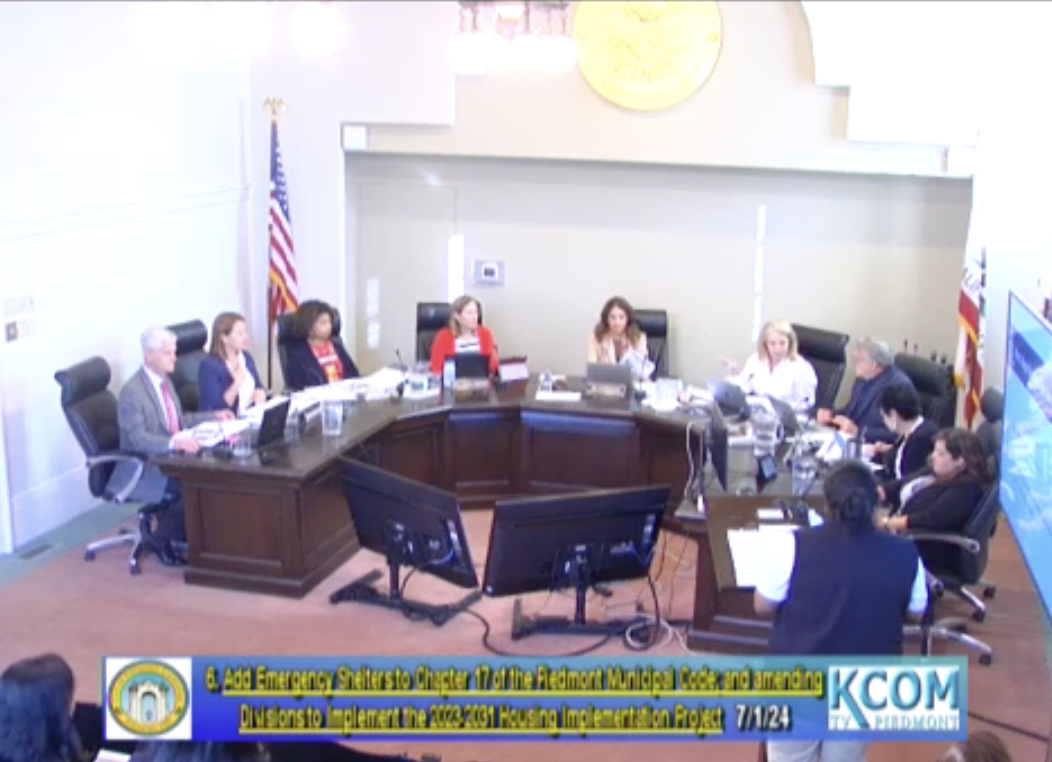City Councilmembers on Monday night approved a first reading of new emergency shelter operations standards, reform to the municipal code to clarify the city charter as it relates to zoning, and revisions to limits on the number of home-sharing leases allowed per single-family residence to further promote affordable housing.
A second and final reading is scheduled for the next council meeting on July 15.
Emergency Shelters
A previous ordinance in the Housing Element allowed emergency shelters in Zones A (in affiliation with a religious institution) and B (the city’s public facilities), with development standards similar to single family residences. The ordinance considered Monday night related to the operations of such shelters. It sets the ceiling for 15 beds and provisions for on-site personnel, among other things.
Planning Director Kevin Jackson said the city has never to his knowledge had a permit request to build an emergency shelter. Generally, Jackson said, emergency shelters are needed in acute situations due to an earthquake or fire.
Reform the municipal code to clarify the city charter
The city will reform the municipal code to clarify that the city charter does not preclude zoning amendments and does not impede the production of housing.
Councilmember Conna McCarthy asked the city attorney to re-state conclusions from a November 2022 white paper analysis that found that although the city cannot expand or contract the boundaries of a Zone, there is no required vote for a change of usage within a Zone. (The question of voting on some aspects of the Housing Element was an issue and matter of some public debate in the 2022 local elections.)
Shared housing
The city amended its zoning ordinance to relax the limits on the number of home sharing leases allowed per single-family residence to further promote affordable housing.
From the city staff report:
Some of Piedmont’s “empty nesters” or other residents who have surplus space in their homes may wish to rent that space in return for income or care, but they may be reluctant to rent to strangers. The non-profit Eden Council for Hope and Opportunity (ECHO Housing), which serves residents throughout Alameda County, operates a shared housing program, which could potentially benefit these residents. Organizations, such as Roomily and Covia Home Match, provide similar programs. These programs match persons needing housing with homeowners who have available space. Shared housing programs can also provide a resource for low-income households, including families and seniors. The ECHO program includes counseling on shared living, supportive services, referrals, and educational workshops on home sharing. To help increase awareness of home sharing options, the City of Piedmont will issue a request for proposals (RFP) to partner with an organization to provide shared housing matching services (such as counseling, referrals, educational workshops, and supportive services) in Piedmont. Any shared housing program in Piedmont should be designed to include extremely low-income families, as well as empty nesters and other seniors.
Councilmember Betsy Smegal Andersen said this ordinance change could have the effect of attracting more families to the city and asked the city to alert the Piedmont Unified School District of the change. Renters in Piedmont have to show proof of residence; that process could be impacted by the new shared housing arrangements.
A “lessee” could be a a single person or a family. That lessee could also sublet to others, said the city. Also, there is no limit to how many unrelated people can live in a home, Jackson confirmed, but the bedroom limit was capped at three which he said was basically the average number of bedrooms per home. There are no parking restrictions for additional renters.
